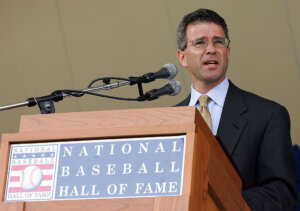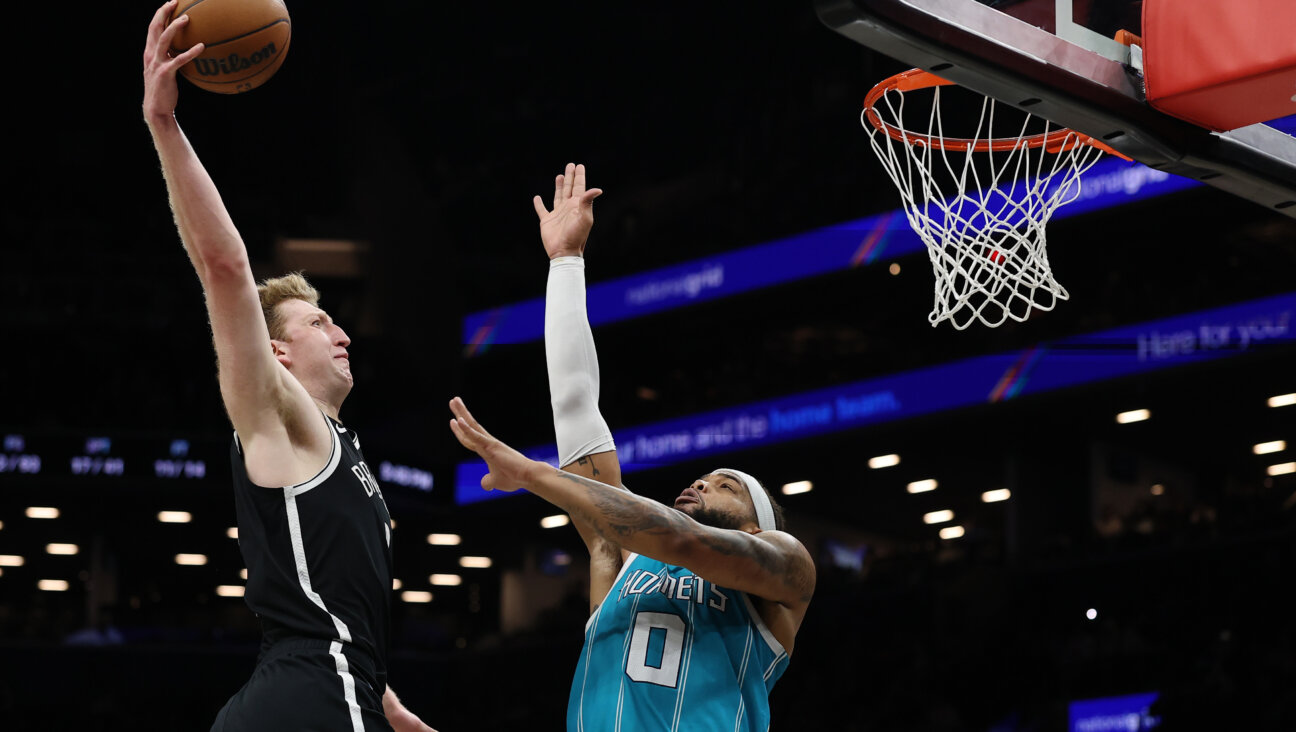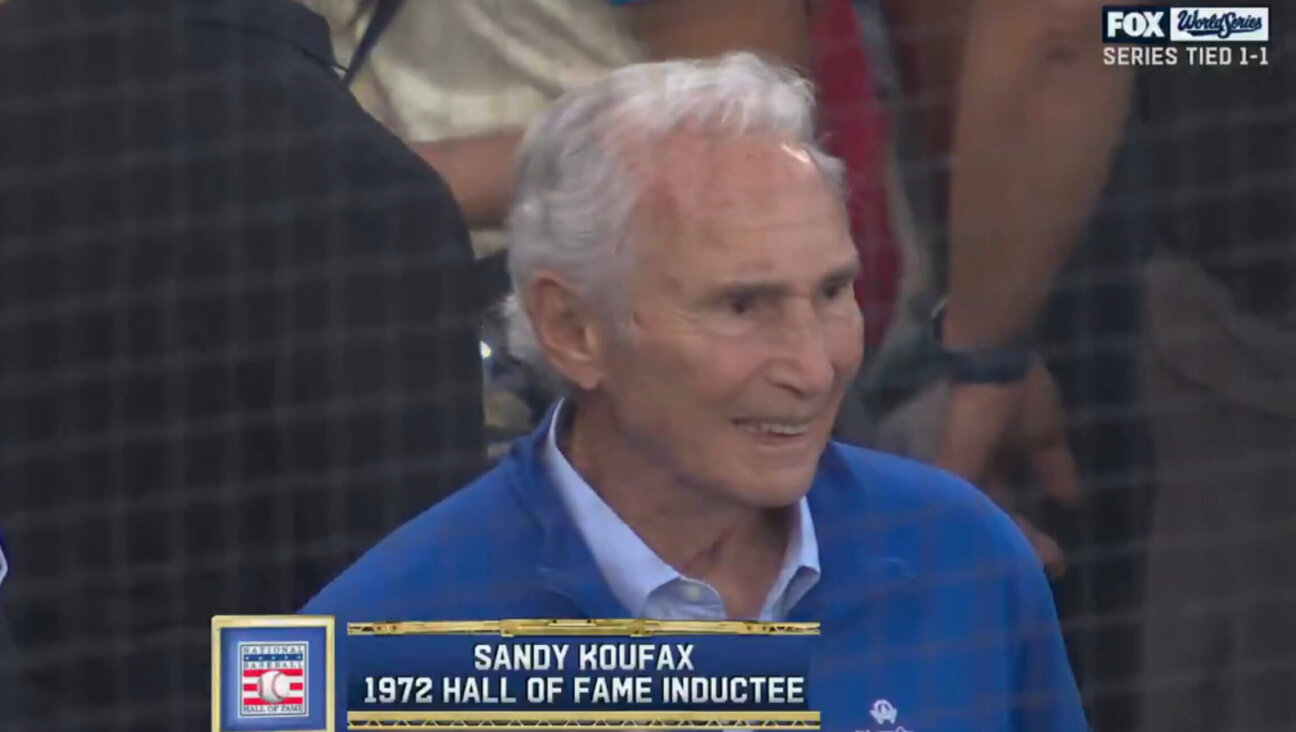The World Series? Invented by a Jewish guy
Jewish immigrant Barney Dreyfuss needed a way to showcase his Pittsburgh Pirates after they kept winning the pennant

Graphic by Angelie Zaslavsky
The Pittsburgh Pirates entered this season as the biggest underdogs to win the National League pennant, which turned out to be accurate as the team finished in a tie for last place in the NL Central. But there was a time when the Pirates were so dominant that their owner, a Jewish immigrant named Barney Dreyfuss, proposed baseball’s first World Series as a way to showcase them.
The Pirates won back-to-back pennants in 1901 and 1902. However, both seasons just ended after that because there was not yet a postseason battle between the champions of the two major leagues. In 1903, as Pittsburgh was on its way to a third straight pennant, Dreyfuss wrote to the owner of the Boston Americans, Henry Killea.
“The time has come for the National League and American League to organize a World Series,” Dreyfuss wrote. “It is my belief that if our clubs played a series on a best-of-nine basis, we would create great interest in baseball, in our leagues, and in our players. I also believe it would be a financial success.”
Killea agreed, and the two teams faced off in baseball’s first World Series that October. But Dreyfuss’ hope to show the superiority of his team and the National League didn’t pan out. Boston took the series five games to three, with Cy Young winning two games for the victorious Americans (now known as the Red Sox).
Even after the Pirates lost the World Series, Dreyfuss donated his share of the profits to the players, according to the Pittsburgh Post-Gazette. “He was a mensch,” University of Pittsburgh sports history professor Rob Ruck told the newspaper.
Dreyfuss’ contribution to baseball went well beyond creating the World Series. He also helped broker a ceasefire between the National and American leagues that helped pave the way for not just the postseason championship, but the coexistence of the two major leagues.
The NL was the established league, the AL the brash upstart. The American League — to this day still sometimes referred to as the “junior circuit” — began operations in 1900, and declared itself a major league the following year. The new league mounted a direct challenge to the National League, raiding the NL for star players, and throwing baseball into a state of chaos.

In 1903, the same year he broached the idea of a World Series, Dreyfuss played a key role in creating a new National Agreement between the leagues. Later, he was instrumental in baseball hiring a commissioner to oversee the sport.
During Dreyfuss’ roughly three decades as owner, the Pirates won six pennants and two World Series titles. That’s a far cry from the modern Pirates, who haven’t won either in more than four decades.
In 2008, more than a century after the first World Series, baseball recognized Dreyfuss’ contributions to the sport by inducting him into its Hall of Fame in Cooperstown, New York.
“Through everything that Dreyfuss did in baseball, he was a fan first,” the Hall of Fame wrote in an online profile. “He excelled at building a great stadium, creating the World Series, ensuring equity and fair treatments of the teams, and building a superior team on the field.”
Humble beginnings
Dreyfuss’ path to baseball ownership was a circuitous one. Born in Freiburg, in what is now Germany, he moved to the United States when he was 19, recruited by his cousins in Kentucky who had a successful bourbon business. Dreyfuss’ doctor told him he needed to exercise, motivating him to start playing the game, as a second baseman.
That led him to organize semi-pro teams in Paducah, Kentucky, using players from his brewery. Then he invested in the Louisville Colonels of the American Association. After that league merged with the National League, the Colonels became a National League team, and by 1899, Dreyfuss was the sole owner.
When it became clear that the NL would soon fold several teams, including his, Dreyfuss worked out a deal to buy a half-interest in the Pirates, transferring the best players from Louisville to his new team, including future Hall of Fame players Honus Wagner, Rube Waddell and Fred Clarke.
Branch Rickey, who signed Jackie Robinson to play for the Brooklyn Dodgers, said Dreyfuss was the best judge of baseball talent he’d ever seen.
Dreyfuss bought out his partners and quickly made his mark in the Steel City.
“He was becoming a prominent figure in Pittsburgh — and in all of professional baseball,” wrote Brian Martin in his 2021 biography, Barney Dreyfuss: Pittsburgh’s Baseball Titan. “He had a keen eye for baseball talent and kept detailed notes on players in his ‘dope book’ filled with information he gleaned from a variety of sources, friends, contacts and newspapers, including ‘Sporting Life’ to which he subscribed.”
In its 1932 obit on Dreyfuss, The New York Times called him “one of organized baseball’s most prominent legislative figures” and “the most thoroughly schooled baseball man to be found among major league club owners.”

















